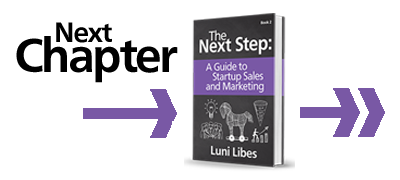No company has ever bought anything.
You may think your customer is a company or government, nonprofit, or other complex organization, but “organizations” do not buy products. People buy products.
In other words, you need to understand who within the organization is your actual customer. And, for a big organization, you also need to understand the process for making purchase decisions.
In such processes, there are four main roles:
- Decision makers
- Influencers
- Advocates
- Blockers
The decision maker(s), as the name implies, makes the final decisions. Depending on the price and complexity of the product, this might be the CEO or an executive committee or a single vice president. For a small enough product, a director makes the purchase decision.
Influencers are all the people who the decision maker talks to before making a decision. For expensive and important products, the decision maker may assign a team to research the choices and report back with a recommendation. You will want to ensure you talk to as many of the influencers as possible.
Often, to fully know the complete list of people within the decision-making process, the roles they play, and the company politics, you need to find a trusted ally who works within the organization. This could be an advocate who shares this knowledge with you and who uses his or her connections to introduce you to all the right people. This role is also known as a “champion,” as in someone who will champion the benefits of your solution within his/her organization.
Without a champion, you are unlikely to identify the “blockers.” These are the people who can say “no.” In a complex sale to a large organization, the decision-making process is not as much a process of gathering enough “yes” votes, but instead a process where one influencer says “yes” and no one says “no.”
These blockers are often not within the same department as the decision makers and influencers. Often, the blockers are people in organizations affected by the purchase, such as the IT group when purchasing a software product. These blockers may also be in the finance department, objecting to your price or any term in your contract.
Finally, sales to large organizations take a long time, since many people must weigh in on the decision, and they are all busy working on other problems that most likely have a higher priority than the problem you are solving.
Remember, this large organization has somehow managed to grow into a big company without your solution. It may be groundbreaking. It may earn them or save them millions. It may end a famine. But, nonetheless, it will take time for everyone involved to understand the benefits of your solution and to believe that your company can deliver what you promise.











